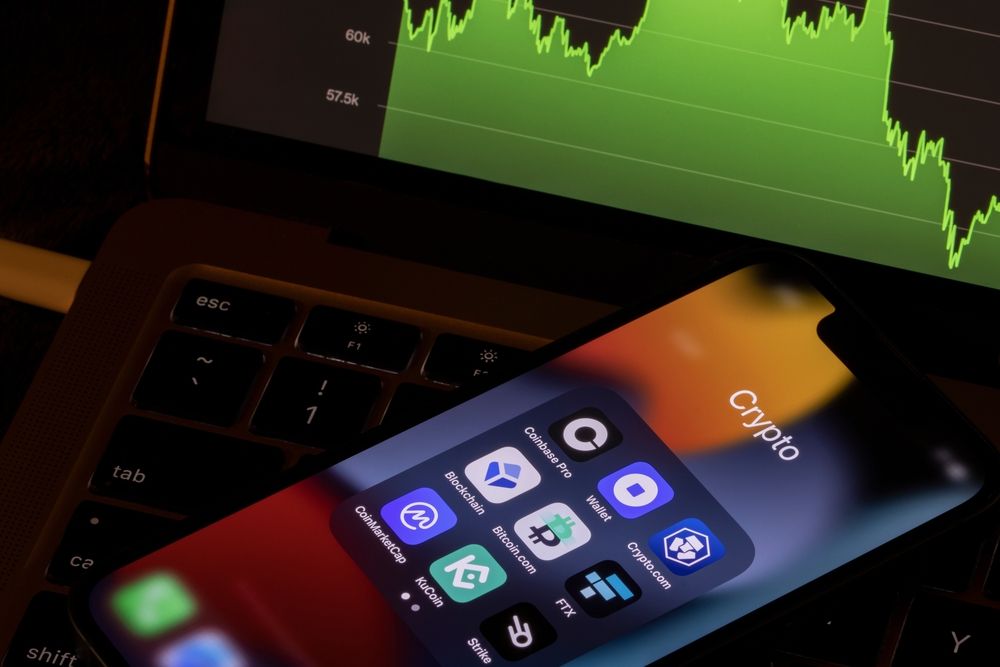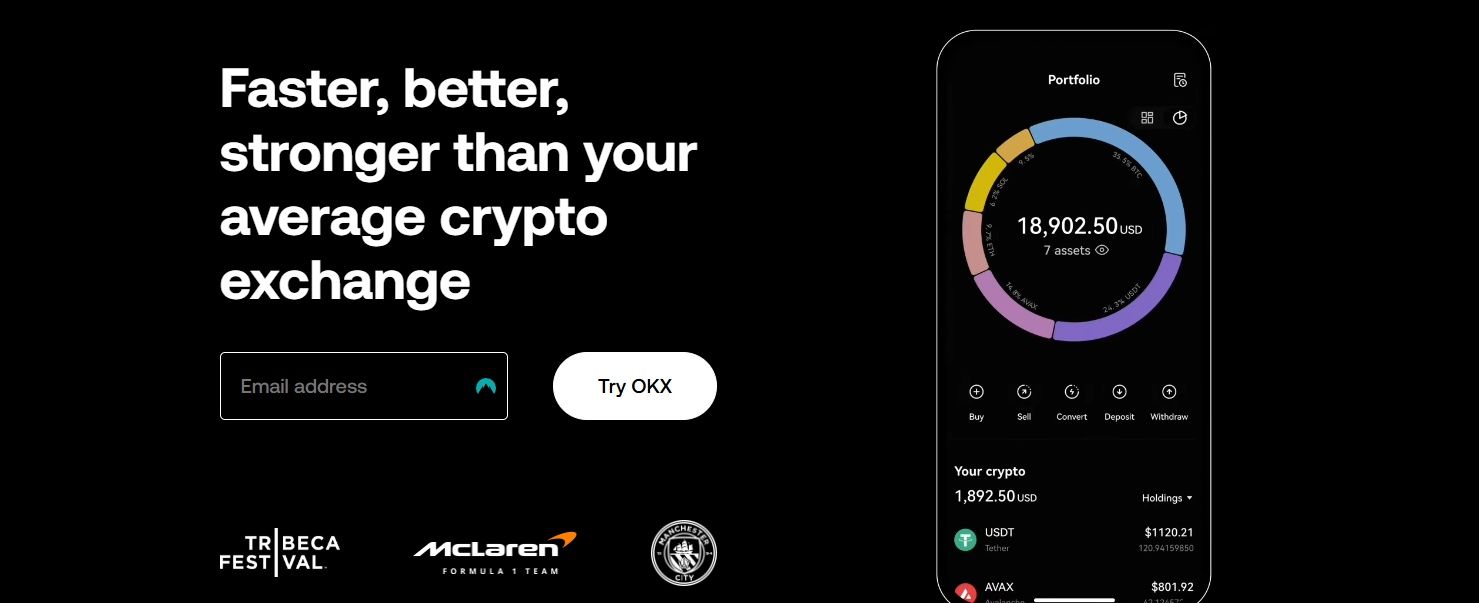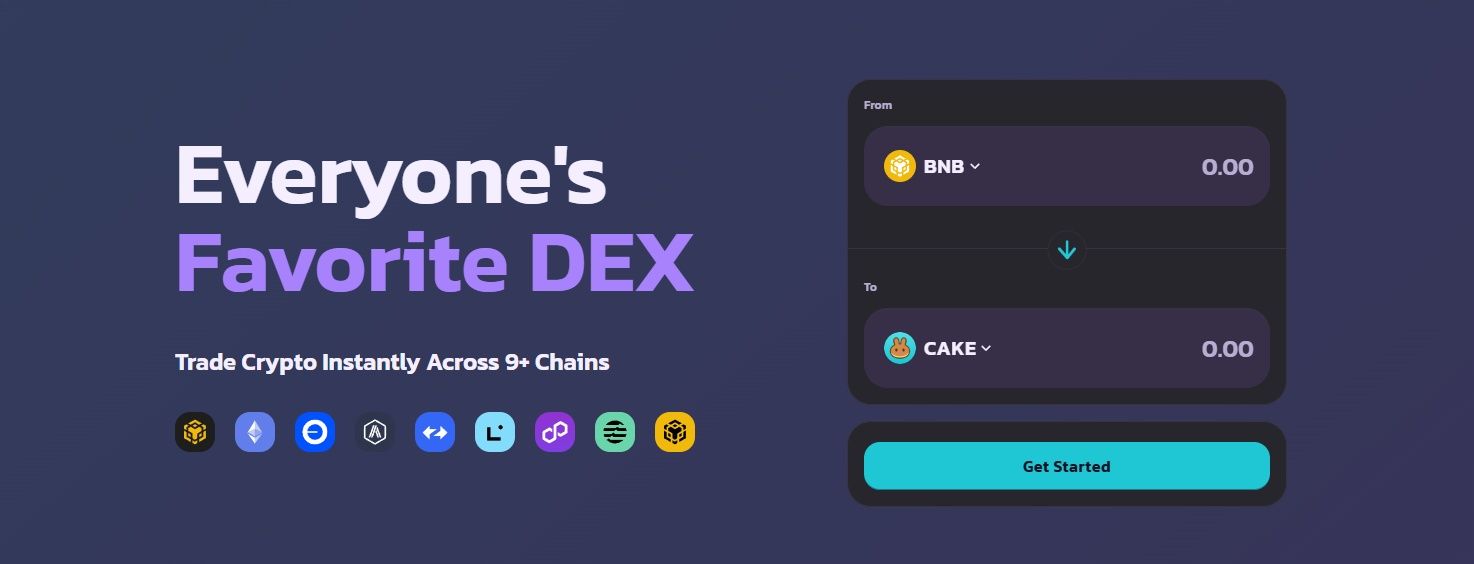Binance is the heavyweight champ of crypto exchanges. It's got the volume, the variety, the flashy features... but even champs have their flaws. Maybe you’re frustrated by regulatory roadblocks, or just not vibing with the interface. Or hey, maybe you’re just the curious type, always on the lookout for something better.
This guide breaks down the alternatives to Binance. We’ll cover what makes a good replacement, who should consider switching, and give you a clear look at the best platforms out there, complete with pros, cons, and a no-nonsense comparison table.
Key Takeaways
- Binance remains dominant, but ongoing regulatory pressure and complexity push users to seek alternatives.
- Alternatives to Binance include Coinbase for beginners, KuCoin for altcoins, Kraken for security, Bybit for derivatives, and OKX for feature depth.
- Bitstamp offers a compliant, fiat-friendly option for EU users, while DEXs like Uniswap and PancakeSwap provide privacy and autonomy.
- Traders should evaluate exchanges based on regulation, fees, asset variety, usability, and extra features like staking or margin.
- Transitioning from Binance? Always double-check wallet addresses, enable 2FA, and bookmark official exchange URLs to avoid phishing.
- There’s no one-size-fits-all solution—try a few platforms and choose based on your goals, experience, and regional availability.
Why Look Beyond Binance?
Binance is undeniably a titan in the crypto exchange arena. With a user base topping 270 million and a vast array of over 350 cryptocurrencies, it's clear why many traders gravitate towards Binance.
However, even giants have their challenges. While the exchange has successfully obtained licenses and registrations in numerous countries, it simultaneously faces significant regulatory challenges and investigations in others.
Binance’s rise has triggered significant regulatory heat, especially in the U.S., where the SEC sued the exchange and its former CEO, Changpeng Zhao, in 2023 for alleged securities violations, leading to a four-month prison sentence. As of April 2025, the case remains paused while a newly formed crypto task force reviews it.
The exchange has also achieved notable regulatory milestones in the Middle East, for example. However, substantial challenges remain in major markets like Canada, the UK, and France, where regulatory bodies have taken enforcement actions or launched investigations into the company's practices.
This mixed regulatory landscape reflects the broader global struggle to establish consistent approaches to cryptocurrency regulation.
 Binance’s rise has triggered significant regulatory heat, especially in the U.S. Image via Binance
Binance’s rise has triggered significant regulatory heat, especially in the U.S. Image via BinanceBeyond regulatory issues, users sometimes voice concerns over the platform's complexity, especially for newcomers. However, we can take that with a pinch of salt since complexity is somewhat subjective. While Binance offers advanced trading features, this can be overwhelming for those just starting out. Additionally, while its fees are competitive, they can vary based on trading volume and the use of BNB tokens for discounts.
Given these factors, it's prudent for traders to explore alternative exchanges that might better align with their specific needs, whether that's a more intuitive interface, different fee structures, or operations in specific regions. This guide aims to shed light on some of the top Binance alternatives, providing insights into their features, pros, and cons to help you make an informed decision.
If you want to take a real deep dive into Binance, we have you covered with our detailed Binance review. We also have a ton of other Binance-related content:
- Binance App Review
- Binance Trading Guide
- Binance Earn Review
- Binance Wallet Review
- Binance Launchpad & Launchpool Review
- Is Binance Safe?
- How To Create Your Binance Account
- Binance Copy Trading Review
What Makes a Good Binance Alternative?
Not all crypto exchanges are built the same, and if you're thinking of switching from Binance, it's worth knowing what actually makes for a solid alternative. Whether you’re just starting out or have been trading for years, a good platform should meet a few key benchmarks.
 A Well-Rounded Exchange offers more than just Basic Spot Trading. Image via Shutterstock
A Well-Rounded Exchange offers more than just Basic Spot Trading. Image via ShutterstockKey Evaluation Criteria
Security & Regulation
Top exchanges put user protection first. That means strong security protocols like two-factor authentication, cold storage for funds, and clear regulatory oversight. These aren't just buzzwords—they’re essential for keeping your assets safe and giving you peace of mind.
Trading Fees
Lower fees mean better margins, especially for high-frequency traders. Some platforms offer discounts for volume or loyalty, while others have flat rates. Either way, fee structures should be transparent and fair.
Supported Cryptocurrencies
A wide selection of coins lets you diversify your portfolio and jump on emerging opportunities. Whether you're into major tokens or hunting for hidden gems, the more options, the better.
Liquidity & Trading Volume
Good liquidity ensures your trades execute quickly and at predictable prices. Low volume can lead to slippage or even being stuck with unfilled orders—definitely something to avoid.
User Interface & Mobile Experience
Whether you're on a desktop or using a mobile app, the platform should be intuitive, responsive, and not feel like you're navigating a cockpit. A clean layout makes all the difference, especially when speed and clarity matter.
Staking, Margin, and Advanced Features
If you’re into earning passive income or using leverage, you'll want access to features like staking, margin trading, and automation tools. A well-rounded exchange offers more than just basic spot trading.
Who Should Consider Alternatives?
U.S. Users
Due to local regulations, not all global platforms are available or fully functional in the U.S. Some users may find their access limited or even blocked depending on the state they live in.
Traders Seeking a Better Experience
If you’ve had issues with slow interfaces, unsatisfactory customer support, or a steep learning curve, exploring other platforms could be a breath of fresh air.
Privacy-First Users
For those who prefer more anonymity, some platforms require minimal to no personal information. While this often comes with trade-offs like lower support or higher risks, it's a valid preference for many in the crypto space.
Quick Comparison Table of Binance Alternatives
Before we dive into any details, here is a quick overview of our top picks as alternatives to Binance.
| Exchange | Trading Fees (Maker/Taker) | KYC | Regulation Status | Supported Coins | Ideal For |
|---|---|---|---|---|---|
| Coinbase | 0.40% / 0.60% | Yes | Fully regulated | 250+ | Beginners seeking simplicity |
| KuCoin | 0.10% / 0.10% | Optional | Partially regulated | 1000+ | Altcoin enthusiasts |
| Kraken | 0.25% / 0.40% | Yes | Fully regulated | 400+ | Security-conscious traders |
| Bybit | 0.10% / 0.10% | Yes | Partially regulated | 500+ | Derivatives and margin traders |
| OKX | 0.08% / 0.10% | Yes | Partially regulated | 300+ | Advanced traders seeking features |
| Bitstamp | 0.30% / 0.40% | Yes | Fully regulated | 100+ | European users valuing compliance |
| DEX Platforms | Varies (network fees) | No | Decentralized | 1,000+ | DeFi users prioritizing privacy |
Coinbase – The Best for Beginners
If you're new to crypto and want a platform that doesn't feel like you're deciphering a spaceship dashboard, Coinbase is a solid pick. It's designed to be approachable, offering a straightforward path into the world of digital assets.
 Coinbase offers an Intuitive Design, making it Easier for Newcomers. Image via Coinbase
Coinbase offers an Intuitive Design, making it Easier for Newcomers. Image via CoinbasePros
Regulated in the U.S.
Coinbase operates under U.S. regulatory frameworks, providing a level of oversight that can offer peace of mind to users.
User-Friendly Interface
The platform's design is intuitive, making it easier for newcomers to navigate buying, selling, and managing cryptocurrencies without a steep learning curve.
Strong Security Measures
Coinbase employs robust security protocols, including two-factor authentication and cold storage for digital assets, aiming to protect user funds.
Cons
Higher Fees Compared to Some Competitors
Coinbase's fees can be higher than those of other exchanges, which might impact frequent traders or those dealing with larger volumes.
Limited Selection of Altcoins
While it covers major cryptocurrencies, Coinbase's range of altcoins is more limited compared to some other platforms, potentially restricting investment options for users interested in a broader array of digital assets.
Best For
Individuals new to cryptocurrency who prioritize a secure, regulated, and user-friendly platform to begin their trading journey.
Coinbase offers a balanced entry point for beginners, combining ease of use with regulatory compliance and security. While it may not cater to those seeking the lowest fees or the widest range of altcoins, it provides a dependable foundation for starting in crypto.
For more details, please check out our detailed review of Coinbase.
KuCoin – Altcoin Hunter's Paradise
For the kind of traders who thrive on exploring new and emerging cryptocurrencies, KuCoin might just be your ideal platform. Known for its vast selection of altcoins and advanced trading features, KuCoin caters to those looking to diversify their portfolios beyond the mainstream.
 KuCoin is Known for its Vast Selection of Altcoins and Advanced Trading Features. Image via KuCoin
KuCoin is Known for its Vast Selection of Altcoins and Advanced Trading Features. Image via KuCoinPros
Extensive Altcoin Selection
KuCoin offers access to over 1,000 cryptocurrencies, including many lesser-known tokens that are hard to find on other platforms.
Competitive Trading Fees
With a base fee of 0.1% for both makers and takers in spot trading, KuCoin provides a cost-effective trading environment. Users can further reduce fees by holding and using the platform's native token, KCS.
Advanced Trading Features
KuCoin supports margin trading with up to 10x leverage and futures trading with leverage up to 100x. The platform also offers a variety of automated trading bots, catering to both novice and experienced traders.
Cons
Regulatory Limitations
KuCoin is not fully regulated in certain jurisdictions, which may raise concerns for users prioritizing regulatory compliance.
Customer Support Challenges
Some users have reported delays and unhelpful responses from KuCoin's customer support, indicating room for improvement in this area. However, these incidents do need to be taken with a pinch of salt as they can vary from person to person.
Best For
Traders seeking exposure to a wide array of altcoins and those interested in utilizing advanced trading features like margin, futures, and automated bots.
KuCoin stands out for its extensive altcoin offerings and advanced trading tools, making it a strong choice for traders looking to explore beyond the conventional cryptocurrency options. However, potential users should weigh the platform's regulatory status and customer support responsiveness when considering it as their primary exchange.
Check out our detailed review of KuCoin for more details.
Kraken – Security and Trust
Looking for a platform where security and compliance take center stage? Kraken has earned its reputation over the years as one of the most trusted exchanges in the industry. Since its launch in 2011, it’s built a solid track record with a focus on protecting user assets and following regulatory standards closely.
 Kraken boasts an Impressive Security Record, with no Major Breaches reported. Image via Kraken
Kraken boasts an Impressive Security Record, with no Major Breaches reported. Image via KrakenPros
Highly Secure and Well-Established
Kraken boasts an impressive security record, with no major breaches reported. It employs advanced security protocols, including two-factor authentication and cold storage solutions, to safeguard user assets.
Good for Fiat Onboarding
The platform supports a variety of fiat currencies, facilitating easy deposits and withdrawals for users worldwide.
Strong Reputation and Regulation
Kraken operates under regulatory oversight in multiple jurisdictions, including recent approvals from the UK's Financial Conduct Authority and the Cyprus Securities and Exchange Commission.
Cons
Slower Interface Compared to Others
Some users have noted that Kraken's interface can be less responsive than those of other exchanges, potentially impacting the trading experience. Again, these cases can vary from person to person.
Fewer Supported Coins than Binance
While Kraken offers a solid selection of cryptocurrencies, its range is more limited compared to platforms like Binance, which may affect traders seeking access to a broader array of tokens.
Best For
Traders who prioritize security and regulatory compliance, and who are looking for a platform with a strong track record and reliable fiat currency support.
Kraken doesn’t aim to be flashy or have the widest coin selection, but it nails the fundamentals: safety, regulation, and dependability. For anyone who values long-term peace of mind over short-term hype, this is a platform worth considering.
Here is our detailed review of Kraken.
Bybit – Power for Derivatives Traders
For traders who thrive on high-leverage strategies and advanced trading tools, Bybit stands out as a formidable platform. Its robust derivatives offerings and user-centric design cater to those seeking a comprehensive trading experience.
 Bybit offers Advanced Derivatives Products with Competitive Fees. Image via Bybit
Bybit offers Advanced Derivatives Products with Competitive Fees. Image via BybitPros
Strong Derivatives and Futures Platform
Bybit offers a wide range of derivatives products, including perpetual and futures contracts, with leverage options up to 100x. This provides traders with opportunities to maximize their positions and implement sophisticated trading strategies.
Low Fees and Deep Liquidity
The platform maintains competitive trading fees. Additionally, Bybit's deep liquidity ensures efficient trade execution, even during periods of high market volatility.
Excellent Trading Interface
Bybit's user interface is designed for both novice and experienced traders, featuring advanced charting tools, customizable dashboards, and seamless navigation, enhancing the overall trading experience.
Cons
Limited Fiat Support
While Bybit has expanded its fiat deposit and withdrawal options, the availability varies by region, and some users may find the fiat support less comprehensive compared to other platforms.
Not Ideal for Absolute Beginners
The platform's focus on advanced trading features and derivatives may present a steep learning curve for newcomers to cryptocurrency trading.
Best For
Professional traders and those experienced with leverage who are looking for a platform offering advanced derivatives products, competitive fees, and a robust trading environment.
Bybit delivers a powerful suite of tools for the seasoned trader, combining advanced derivatives offerings with a user-friendly interface. While it may not be the go-to choice for beginners, its features and performance make it a top contender for those seeking a comprehensive trading platform.
Here is a detailed review of Bybit for more insight.
OKX – Feature-Rich with Global Reach
OKX has carved out a niche as a comprehensive crypto platform, offering a suite of services that cater to both traders and Web3 enthusiasts. With features ranging from advanced trading tools to DeFi integration and an NFT marketplace, OKX positions itself as a one-stop shop for digital asset management.
 OKX Features Range from Advanced Trading Tools to DeFi Integration and an NFT Marketplace. Image via OKX
OKX Features Range from Advanced Trading Tools to DeFi Integration and an NFT Marketplace. Image via OKXPros
Diverse Range of Services
OKX provides a broad spectrum of services, including staking options, decentralized finance (DeFi) tools, and a robust NFT marketplace. This diversity allows users to engage with various aspects of the crypto ecosystem without leaving the platform.
Extensive Altcoin Selection
The platform supports over 300 cryptocurrencies, offering traders access to a wide array of altcoins and trading pairs. This extensive selection caters to those looking to explore beyond mainstream tokens.
Competitive Fees and Efficient Execution
OKX maintains low trading fees, starting at 0.08% for makers and 0.10% for takers in the spot market. Coupled with deep liquidity, this ensures swift and cost-effective trade executions.
Cons
Complexity for Beginners
The platform's extensive features and tools may present a steep learning curve for newcomers to the crypto space. Navigating through advanced trading options and DeFi integrations might be overwhelming for some users.
Limited Regulatory Transparency
While OKX operates globally, its regulatory status varies across jurisdictions. Users should be aware of the platform's compliance with local regulations, especially in regions with stringent crypto laws.
Best For
Intermediate to advanced traders seeking a platform that combines traditional trading features with access to DeFi services and NFT markets. OKX's comprehensive offerings make it suitable for users looking to manage diverse crypto activities in one place.
OKX stands out for its all-encompassing approach to cryptocurrency trading and digital asset management. While its complexity may deter beginners, those with experience in the crypto realm will find a platform rich in features and opportunities.
We have OKX covered for you in much more detail as well.
Bitstamp – A Reliable EU-Based Option
Bitstamp has earned its reputation as one of the most established crypto exchanges, particularly appealing to users in Europe. With a focus on regulatory compliance and straightforward fiat support, it offers a solid foundation for those entering the crypto space.
 Bitstamp focuses on Regulatory Compliance and straightforward Fiat Support. Image via Bitstamp
Bitstamp focuses on Regulatory Compliance and straightforward Fiat Support. Image via BitstampPros
Long-Standing Exchange with Regulatory Compliance
Founded in 2011, Bitstamp is among the oldest crypto exchanges, operating under regulatory oversight in multiple jurisdictions. This longevity and adherence to regulations provide users with a sense of security and trust.
Great for Fiat Support (SEPA, Wire Transfers)
Bitstamp supports various fiat deposit and withdrawal methods, including SEPA transfers for European users and international wire transfers. This makes it convenient for users to move funds between their bank accounts and the exchange.
Simple for Beginners
The platform's user interface is designed for ease of use, making it accessible for those new to cryptocurrency trading. Its straightforward layout allows beginners to navigate buying, selling, and managing digital assets with minimal confusion.
Cons
Smaller Altcoin Selection
Compared to some other exchanges, Bitstamp offers a more limited range of cryptocurrencies, focusing primarily on major coins. This might be a drawback for users looking to trade a wide variety of altcoins.
Interface Feels Outdated
While functional, Bitstamp's interface may appear dated to users accustomed to more modern designs. The platform could benefit from a visual and user experience refresh to meet contemporary standards.
Best For
European traders or anyone seeking a compliant platform with reliable fiat support and a straightforward user experience.
Bitstamp stands out for its regulatory compliance and ease of use, making it a dependable choice for users prioritizing security and simplicity. While it may not offer the extensive altcoin variety or advanced features found on other platforms, its focus on core functionalities serves its target audience well.
Here is a detailed review of Bitstamp for more information.
Decentralized Alternatives: DEXs Like Uniswap & PancakeSwap
For those who prioritize autonomy and privacy in their crypto transactions, decentralized exchanges (DEXs) like Uniswap and PancakeSwap offer interesting alternatives to centralized platforms. These platforms enable direct peer-to-peer trading without intermediaries, aligning with the core principles of decentralized finance (DeFi).
 Decentralized Exchanges like Uniswap and PancakeSwap offer Interesting Alternatives. Image via Pancakeswap
Decentralized Exchanges like Uniswap and PancakeSwap offer Interesting Alternatives. Image via PancakeswapPros
- Full Control of Assets (Non-Custodial): DEXs operate without holding users' funds, allowing traders to maintain control over their assets at all times. This reduces the risk associated with centralized custodians and aligns with the "not your keys, not your coins" philosophy.
- No KYC, Greater Privacy: Platforms like Uniswap and PancakeSwap do not require Know Your Customer (KYC) procedures, enabling users to trade without disclosing personal information. This enhances privacy and accessibility, especially for those in regions with strict regulatory environments.
- Great for DeFi Token Access: DEXs often list a wide array of tokens, including new and niche DeFi projects that may not be available on centralized exchanges. This provides opportunities for early access to emerging assets and participation in diverse DeFi ecosystems.
Cons
- Higher Risk of Slippage and Failed Trades: Due to varying liquidity levels, especially in less popular trading pairs, users may experience slippage, where the executed price differs from the expected price. Additionally, transactions can fail if price movements occur during the confirmation process, leading to potential losses in gas fees.
- No Customer Support or Recovery: The decentralized nature of DEXs means there is no centralized customer service to assist with issues or recover lost funds. Users are solely responsible for managing their wallets and transactions, which can be daunting for beginners.
Best For
DEXs are well-suited for:
- DeFi Users: Individuals actively participating in decentralized finance protocols and seeking access to a broad range of tokens.
- Privacy Advocates: Users who value anonymity and wish to trade without undergoing KYC procedures.
- Token Explorers: Traders interested in discovering and investing in new or niche tokens not listed on centralized exchanges.
While DEXs like Uniswap and PancakeSwap offer enhanced privacy and control, they also require users to take full responsibility for their trading activities. For those comfortable with managing their own wallets and navigating the decentralized landscape, these platforms provide a gateway to a more autonomous trading experience.
How to Safely Transition from Binance to Another Exchange
Switching exchanges doesn’t have to be stressful, but it does require a bit of care—especially when your funds are on the move. Whether you're making a complete exit from Binance or just testing new waters, these steps will help keep your crypto safe during the transition.
 Taking the Time to Secure your Transition Properly can save you from Headaches. Image via Freepik
Taking the Time to Secure your Transition Properly can save you from Headaches. Image via FreepikSteps for Transferring Funds Securely
Withdraw to Self-Custody or Your New Exchange Wallet
Start by deciding where you're sending your crypto. If it’s to another exchange, make sure your account is fully set up there first. Many users opt to withdraw to a self-custody wallet first, like a hardware wallet, for added control before moving funds again if needed.
Double-Check Withdrawal Addresses
Never, ever copy-paste blindly. Always double-check that the wallet address you’re sending to matches the one shown on your new platform or personal wallet. A single typo—or worse, malware that hijacks your clipboard—can result in a total loss.
Best Practices During Platform Migration
Enable 2FA on the New Exchange Immediately
The moment you register on your new platform, turn on two-factor authentication (2FA). It’s a simple step that adds a vital layer of protection against unauthorized access.
Beware of Phishing When Searching for Platforms
Don’t just Google your new exchange and click the first link—scammers rely on that. Always type in the official URL yourself, bookmark it, and watch out for fake websites with nearly identical addresses.
Handling your crypto like a pro means thinking two steps ahead. Taking the time to secure your transition properly can save you from headaches and losses later on.
Final Verdict: Which Binance Alternative Is Right for You?
Here’s the thing—there’s no “best” exchange for everyone. The right platform for you depends on where you live, how much crypto experience you’ve got, and what you actually want out of trading. Looking for regulation and ease of use? Keep it simple. Want every altcoin under the sun or high-leverage futures? You’ll need something more advanced. Prefer to stay anonymous and handle everything yourself? Welcome to the world of DEXs.
Our take? Test-drive a few. Seriously. You won’t know what works best until you try it. Most platforms let you set up an account and poke around without committing funds right away.
And when you’re ready to dig deeper, we’ve got detailed reviews on every exchange covered here. Fees, quirks, hidden perks—we don’t sugarcoat anything. Because in crypto, the more you know, the better you trade.





